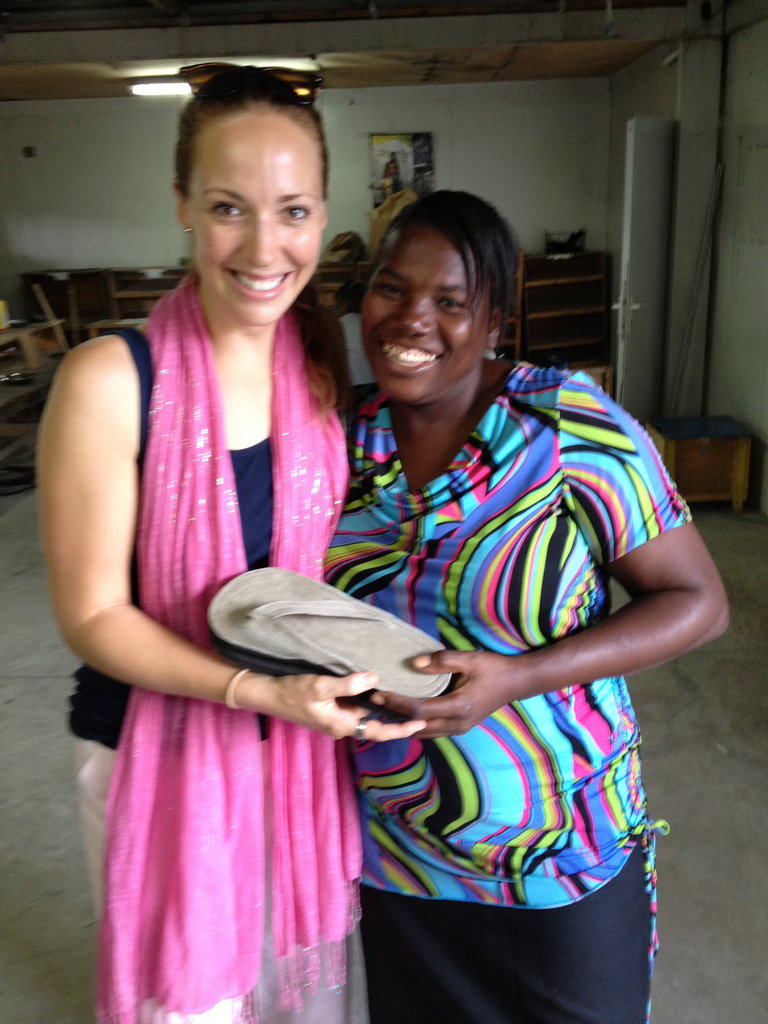By Jenn Eason | Field representative in Haiti
Greetings from BEAUTIFUL Haiti!
I have had the privilege of living here for the past 3+ months. Residing in Haiti full time certainly has changed my perspective on Haitian development and aid. The perspective I had previously from short trips a week at a time is very different from the reality of living here. But one thing remains, Hope is alive and well in Haiti! This country is Beautiful, not just because of sunsets and sunrises blanketed with high mountains and palm trees or a calendar worthy deserted beach with gently lapping waves… but because the people make it so. Haitians are, by nature, giving, kind, congenial and hard working.
After the earthquake, amidst the chaos, the temporary fix was mass handouts. This was necessary and important for short-term survival, but that time has long since passed. Haitians want and need jobs. With unemployment as high as 80% in some parts of the country, Haitians are looking for training. They want to earn the right to provide for their families, to have a sense of dignity. The focus now for most organizations is long-term sustainability. How does this happen? Providing training and jobs. Haitians are eager to learn and excited to put to practice what they’ve learned.
I spent an afternoon with International Disaster Volunteers and their students at the English in Mind English school. They are a fun bunch if I’ve ever seen one. They are serious about learning English and they have a great time doing it. They incorporate songs, stories and a lot of laughing. This was a refreshing site visit for me because the students wanted to have a Q&A session with me. It was so much fun letting them pick my brain (as they proudly referred to it in English idiom) and allow me to ask questions. They ended the session by asking what advice I would give Haiti regarding “the changes that need to be made”. My reply was simple. We have an America, we have Germany, France, England, et al… We don’t need another one. But we do need a strong Haiti. Make the changes that need to be made regarding infrastructure of the country, but don’t let it change who you are as a culture.
REBUILDGlobally is another such organization making super cool flip-flops out of trash tires. They are providing jobs for locals in and around Port au Prince. Many of the men and women working there have been able to take their kids back from poverty orphan care, buy land and move their families from tent cities to a new home. More over, 2 of the employees have been promoted from shoemakers to manager of operations and manager of the local sales store. The men and women were provided training and are now teaching others what they’ve learned.
Hats off to the men and women of Haiti and the visiting NGO’s working hard to preserve a culture while advancing an economy!! Keep up the good work!
Project reports on GlobalGiving are posted directly to globalgiving.org by Project Leaders as they are completed, generally every 3-4 months. To protect the integrity of these documents, GlobalGiving does not alter them; therefore you may find some language or formatting issues.
If you donate to this project or have donated to this project, you can receive an email when this project posts a report. You can also subscribe for reports without donating.
When a disaster strikes, recovery efforts led by people who live and work in affected communities are often overlooked and underfunded. GlobalGiving is changing this reality. Since 2004, we've been shifting decision-making power to crises-affected communities through trust-based grantmaking and support.
We make it easy, quick, and safe to support people on the ground who understand needs in their communities better than anyone else.
They were there long before the news cameras arrived, and they’ll be there long after the cameras leave. They know how to make their communities more resilient to future disasters, and they’re already hard at work. GlobalGiving puts donations and grants directly into their hands. Because the status quo—which gives the vast majority of funding to a few large organizations—doesn’t make sense.
Questions about this project? Contact us
